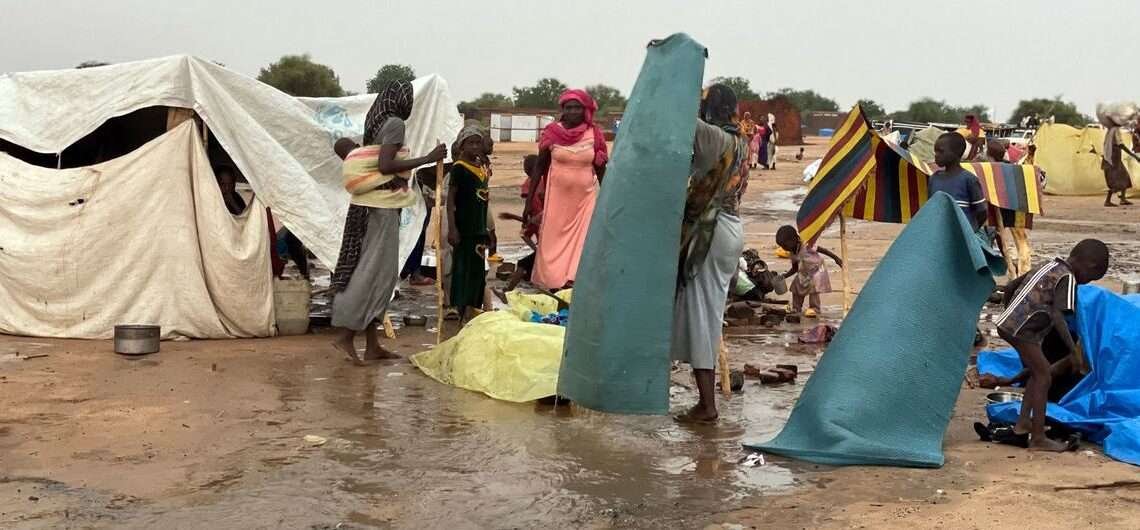The ongoing fighting in Sudan continues to take a devastating toll on the population, with thousands of lives lost and millions displaced. As world leaders gathered in New York on Tuesday, UN humanitarian agencies urged them to remember the suffering people of Sudan.
The World Food Programme (WFP) has reported that around 800,000 Sudanese refugees have fled to neighboring Chad, escaping what it described as “unimaginable violence” and worsening food shortages.
Leni Kinzli, a WFP communications officer, explained to journalists in Geneva that many Sudanese refugees said they fled not only because of the conflict but also because their crops had been destroyed by floods, leaving them with nothing to eat.
“They left because there was nothing left to eat and all their crops had been destroyed by floods,” Kinzli noted. Additionally, farming has become impossible in many areas due to the ongoing clashes between the Sudanese Armed Forces and the Rapid Support Forces, which began on April 15 of last year.
Call for International Solidarity
Ms. Kinzli emphasized that the WFP is doing everything within its power, but warned that “we cannot stop widespread starvation and hunger-related deaths without the support and attention of the international community.”

She called on world leaders to treat the Sudanese humanitarian crisis with the urgency it deserves, urging them to push for a humanitarian ceasefire and, ultimately, an end to the conflict.
Since the Adre border crossing from Chad into Sudan reopened, the WFP has been able to transport 2,800 tons of food and nutrition supplies to the war-torn Darfur region.
This aid will support 250,000 people, including 100,000 at immediate risk of famine. However, WFP warns that a total of 36 million people across Sudan and the surrounding region face hunger due to the ongoing war.
Challenging Aid Delivery
Despite logistical challenges such as flooded seasonal rivers and treacherous roads, aid trucks continue to cross the border from Chad into Sudan.
Kinzli acknowledged the difficult conditions faced by aid workers but stressed the importance of keeping supply lines open to prevent more deaths from hunger.
While Chad itself is not at war, the WFP reports that the situation for refugees crossing into the country remains dire. “People are only met with hunger and destitution,” Kinzli explained. She shared the story of a teenage girl who fled Sudan and is now responsible for her younger siblings.
Despite receiving food assistance, the girl is sometimes only able to offer her siblings water instead of a meal. “If that is the situation for people in a comparatively safe and stable place, it is hard to imagine what people facing famine or at risk of famine in Sudan are going through,” Kinzli added.
The international community is urged to rally support for Sudan and provide the necessary resources to avert a full-scale humanitarian catastrophe.
READ ALSO: Bright Simons Criticizes “State Enchantment” in Ghana’s Birth and Death Registration Reform


















